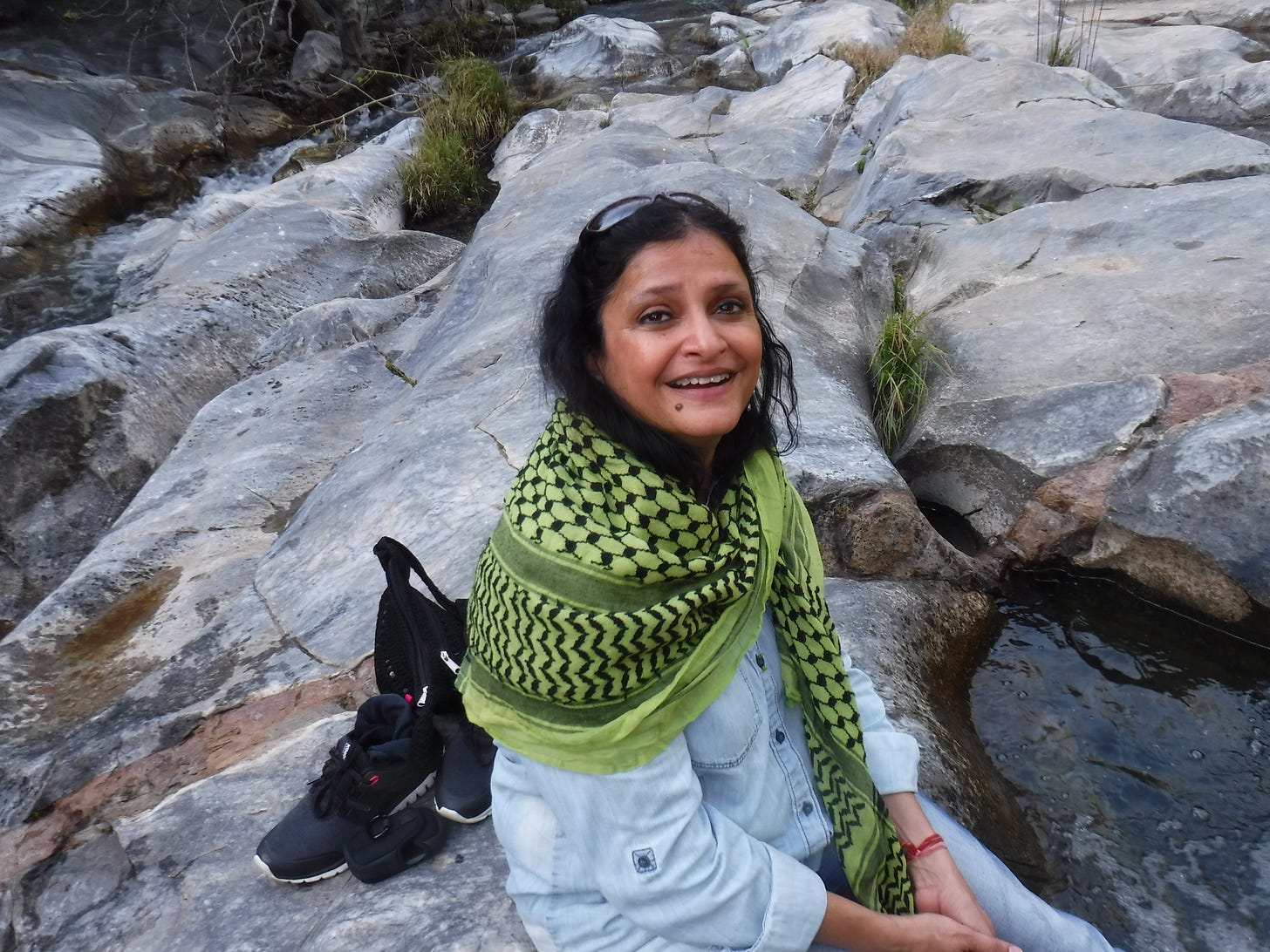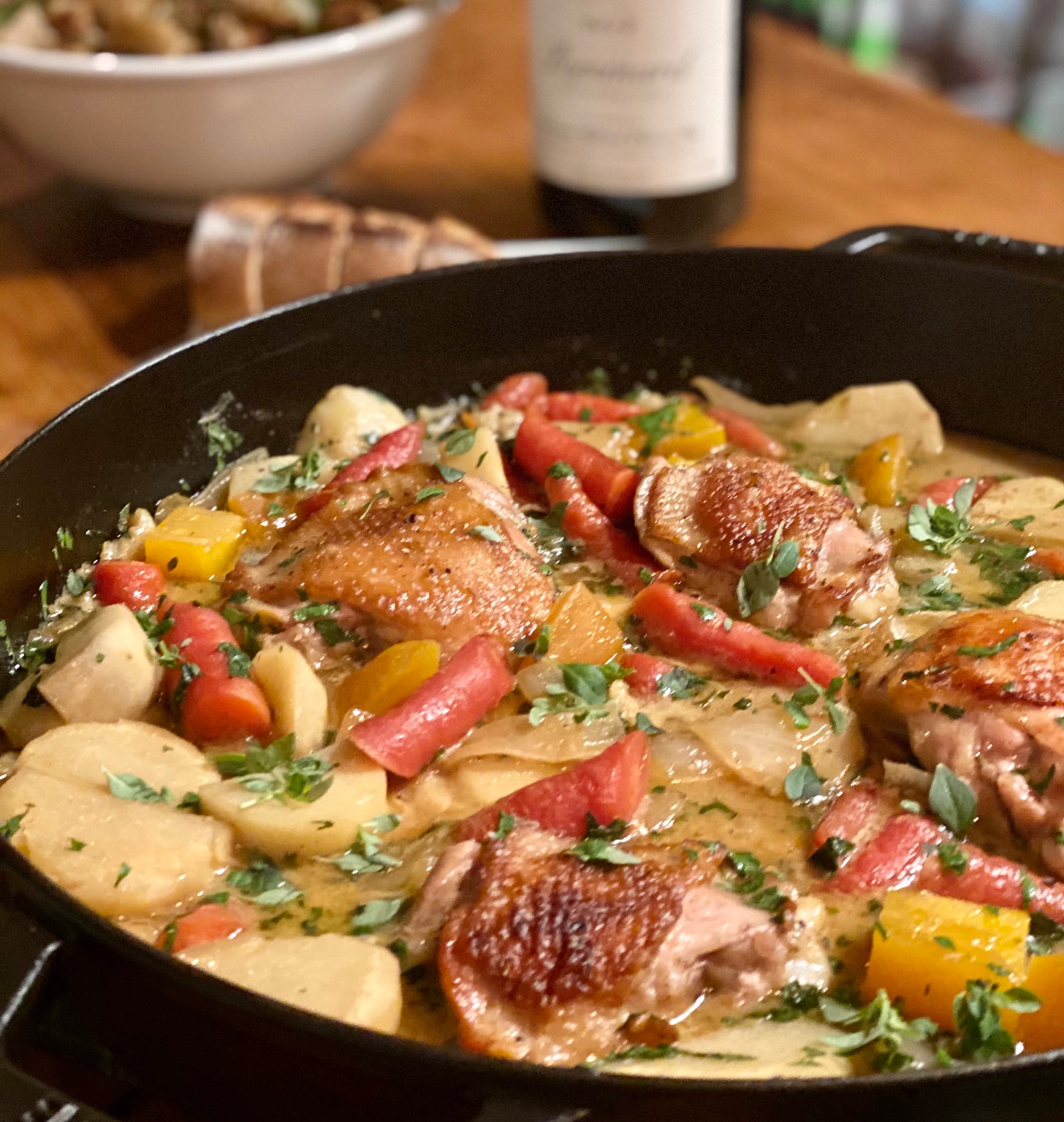New year, new grain
Serious questions about silly food trends
Food media loves an “it” ingredient as much as it loves to manufacture trends. And quinoa is the quintessential example.
Over the course of a few years, the staple of indigenous South American cuisine became the go-to grain for every health-conscious, avocado-topped “bowl” in the U.S.
But not long after, reports of a darker side emerged. Food journalists warned that because of affluent countries’ greedy consumption of the gluten-free miracle grain, Bolivians and Peruvians could no longer afford it in their own countries. However, researchers quickly dug into real data and found...the exact opposite. “The claim that rising quinoa prices were hurting those who had traditionally produced and consumed it [is] patently false,” they concluded.
“[Researchers] split the households into three groups: those who grow and eat quinoa, those who eat it but do not grow it, and those who neither grow nor eat quinoa. All three showed a clear rise in their welfare — measured as the total value of goods consumed — as the price of quinoa rose. That reflects increasing living standards in Peru. But at the height of the boom, the welfare of quinoa growers increased more rapidly than that of the other two groups.
As for people who eat but don't grow quinoa? They are roughly twice as well-off as those who grow it. The amount they bought dropped slightly, but not much. They could still afford it, even at the height of the boom.”
I was thinking about all of this when I interviewed the founders of Yolélé (one of whom, fittingly, was at least partially responsible for the popularization of quinoa many years ago) for a Civil Eats story in December. Sengalese chef Pierre Thiam (who has been living and cooking in the U.S. for a long time now) conceived of the company. The idea was to buy an ancient African grain called fonio from small farms in West Africa, with a goal of increasing incomes and food security (AKA decreasing hunger) there. Fonio is highly nutritious and is naturally gluten-free. It also has climate benefits, since growing it requires few inputs and it can weather all kinds of extremes. Alas, over the past few years, it has been dubbed, over and over, the “next quinoa.”
Okay, so eating fonio sounded like a decent idea, but I was skeptical. Not long ago, I wrote about how even philanthropic investments in African agriculture and food security often end up feeding global markets to the benefit of big corporations and the detriment of farmers, communities, and the planet. Could a company based in the U.S. selling “wellness” foods to affluent eaters truly benefit smallholder farmers in Africa? (“Smallholder farms” is basically a global term for what we call “small family farms” in the US.)
In the process of trying to determine if I could trust the founders’ approach, I interviewed Anuradha Mittal, the executive director of The Oakland Institute. Mittal is not involved with the company and was willing to provide an outside perspective based on her years of expertise in development, human rights, and farming.
I asked her for her thoughts on this one company selling one grain, and I was genuinely (and pleasantly) surprised by her enthusiasm. I also loved this interview. It gets at so many complex issues with the global food supply chain in just a few questions. Mittal links building food processing infrastructure in Africa to efforts to dismantle a history of colonization and says we should be looking to traditional crops to figure out how to feed ourselves as the climate changes.
I hope you enjoy the conversation as much as I did.
Has fonio come up in your work before? We often look at traditional foods and grains for a variety of reasons. One is, of course, they have nurtured societies. And we talk about biodiversity and cultural biodiversity. So it definitely has come up from there. Secondly, I think with the climate crisis, more and more of us need to be looking at traditional crops, because...people talk about climate-smart agriculture and tend to come up with technological solutions. Well, talk about climate-smart agriculture! It's already there with traditional crops that weather all kinds of seasons and droughts.
Let’s talk about Yolélé’s model. At the core is exporting fonio so that small farms that are growing it for their families are also able to sell it for income. On one hand, this approach does not push Western seeds and chemicals on farmers like a lot of companies do. But the company is still about selling into international markets, which makes me think it could be exploitative. What are your thoughts? I find it fascinating. As you said, we have an industrial food system, which has pushed, for example, corn and white rice, down the throats of people around the globe. And over time, Africa, which was a net food exporter, has turned into a net food importer. In Latin America, the same thing has happened. What [that system does] is not just destroy the environment, they destroy livelihoods and convert smallholder farmers—who have nourished their families and communities and preserved biodiversity—into plantation workers. In the face of that, [Yolélé] is a solution from the bottom up, coming from Africa, which is providing an opportunity to showcase traditional crops and working with West African smallholder farmers. That is unique.
[The founders] talk about the resilience of our food system, about biodiversity, the climate crisis, livelihoods. This is the kind of model that we need. I also like the idea of pride in African food.
One of the things that they're doing right now is building greater capacity to process fonio in West Africa. [Editor’s note: Processing means separating the grain from the stalk and removing an inedible hard shell.] There isn’t any infrastructure for it, and it's a very laborious process that leads to a lot of food waste. Based on your work in African countries, how important is processing infrastructure to building food security? When we look at the past, there's a reason that processing facilities were not set up. In Africa, in Asia, and Latin America...these were colonized countries. And when you colonize, you extract resources. You're not thinking about building assets and wealth and resources. You're talking about pillaging and stealing.
The fact that they’re not just taking the grain, but they’re processing [it in Africa], [that means] they’re building further value and preventing the loss, which allows for more of the profits to remain with producers of that grain. Even in the U.S, when you buy bread for a dollar, only a few cents go to the farmer. The rest goes to processors and other people in the middle. And if you're going to change the food system, if you're going to really focus not just on food security but on independence, which comes with economic growth and social growth—for that, it's a key factor.
When you say independence, do you mean food sovereignty? Well, yes, food sovereignty. And it means resources. It's incredible when people talk about African countries being poor countries. These are the richest nations with the resources they have. So I'm talking about independence as true freedom from these colonizing powers that continue to control the resources of African countries and continue to control the fate and the future of the generations to come in Africa. So a solution which is based in Africa, in its own culture, in its own diet, and is owned and controlled by the people, that's what I mean by true independence—food sovereignty, but also political freedom.
A side of policy
The new guy. It’s officially day two of the Biden-Harris administration. Here we go!
At the end of 2020, I compiled this looong summary of how four years of Trump shaped food and farming. The Biden administration will want to reverse many (not all) of those policies, but it will take a looong time for them to make that happen.
A few things that are already in motion: Yesterday, President Biden kicked off his run by rejoining the Paris Agreement, signaling his commitment to action on climate change.
And this is huge: He overturned a Trump policy that “pushed aggressive efforts to find and deport unauthorized immigrants” while introducing legislation that will provide a pathway to citizenship for many undocumented people already living and working in the U.S. Our current food system (and therefore each of us) is completely dependent on immigrants, and the bill includes special priority for agricultural workers.
In the coming weeks, there will be lots of attention on a new round of pandemic-related aid, which is likely to include increases in SNAP benefits and other provisions to deal with the country’s sky-high rates of food insecurity. My friend Bettina explains the momentum that’s also building for universal school meals, in her publication, The Lunch Tray.
Finally, ICYMI, Black farmers (and many, many others) are angry about Biden appointing Tom Vilsack to lead the USDA. While the incoming chair of the House Agriculture Committee, Representative David Scott, says he’ll prioritize racial justice.
Still hungry?
Can we meat halfway? For Mother Jones, I wrote about why promoting keto diets to the masses is a public health issue. (Yes, it’s about climate change.)
Label lies. For Civil Eats, I covered a new report that examines animal welfare certifications like “Certified Humane” and what they can really tell us about the way animals are raised.
Fennel funding. On The Farm Report, I interviewed Dan Miller about Steward, an investment platform he created to get more capital flowing towards small, sustainable farms.
Currently devouring
Sorry, Thumper. Betsy Andrews’ Eater story on why we should be eating more rabbit in place of other industrially-produced, carbon-intensive meats was a great read.
Not just for Pandas. I just moved into a new house and there is a wild bamboo forest behind it, in a place that it clearly does not belong. So I was thrilled to see Audrey Gray’s fascinating story on Inside Climate News about how bamboo forests can turn degraded lank into carbon sinks and protect families in agricultural regions from dust storms.
Long haul. Farmworkers have long lacked basic labor protections given to workers in other industries. In The Counter, H. Claire Brown lays out how that fact relates to structural racism and digs into the chances that Congress may finally grant farmworkers overtime pay under a Biden administration.
Actually eating
One of the first big meals we ate in our new house: roasted chicken thighs with root vegetables. The chicken was from White Oak Pastures in Georgia (the best in the business, if you eat meat). The vegetables—potatoes, golden beets, and carrots—were from farms nearby. I loved this meal because it was warming and based on winter crops. And it’s an easy dish to make with whatever root vegetables and chicken you happen to have on hand.
I am spoiled by the fact that my partner, Spike, is a brilliant chef. (Really, really spoiled, I know.) But if you’ve got chicken and vegetables plus some garlic, oil, and salt, you can make your own version by just putting it all in a pan in the oven. Like this, for example.
Let’s be friends
Follow me on Twitter and Instagram to continue the conversation. See you next week! I’ll be hanging in the field with Bernie until then.





